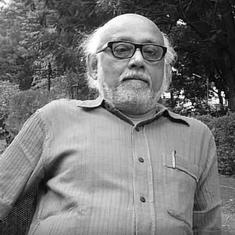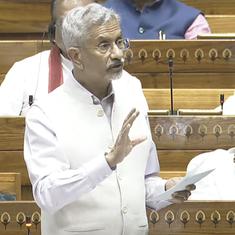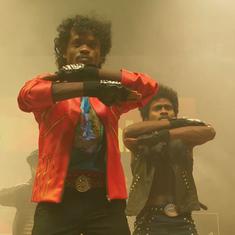In Pakistan’s tumultuous political history, no civilian leader has challenged the military’s dominance as boldly as Imran Khan. Once a favored ally of the establishment, Khan has transformed into its fiercest critic, triggering a political showdown that could redefine the country’s governance.
While the confrontation between Khan, now imprisoned, and Army Chief General Asim Munir might seem destabilising in the short term, it holds the potential to recalibrate Pakistan’s democracy by curbing decades of unchecked military power.
For over seven decades, Pakistan’s military has dominated the nation’s political and economic spheres. Through coups, direct rule, and covert manipulation, it has consistently undermined democratic institutions and cultivated a culture of impunity. Civilian governments, including Khan’s, have frequently operated as mere extensions of the military, stripped of true autonomy.
Leaders who dared to challenge this status quo – Zulfikar Ali Bhutto, Benazir Bhutto, and Nawaz Sharif – faced dismissals, exiles, and even assassination. Imran Khan’s current defiance is unprecedented in its scale and intensity, forcing an overdue reckoning with the military’s entrenched control.
Khan’s explicit accusations against senior military officials, including former Army Chief General Qamar Javed Bajwa and General Asim Munir, have shattered long-standing taboos. Public criticism of the military has historically been met with severe repression – censorship, imprisonment, and even enforced disappearances. Khan’s allegations of election rigging, political interference and corruption have resonated with millions, fueling a historic wave of public dissent.
The violent protests following his arrest in May 2023 marked a significant shift. For the first time, ordinary Pakistanis, including members of military families, directly targeted the institution’s symbols of power. Military installations were stormed, and the once-sacrosanct General Headquarters was breached. While the violence cannot be justified, it exposed the depth of public frustration with the military’s overreach.
PAKISTAN: The government must fully protect and ensure the rights of protesters and immediately rescind the ‘shoot-on-sight’ orders that provide undue and excessive powers to the military.
— Amnesty International South Asia, Regional Office (@amnestysasia) November 26, 2024
In response to protests by the Pakistan Tehreek-e-Insaf (PTI) in Islamabad, the… pic.twitter.com/7hqrwyXjOb
Imran Khan’s confrontational approach has polarised Pakistan. His rhetoric, often uncompromising, has alienated political allies and intensified divisions. Yet, it serves a vital democratic purpose. By spotlighting the military’s disproportionate influence, Khan has compelled Pakistanis to confront a critical question: should elected representatives or unelected generals shape the country’s destiny?
This challenge has catalysed a broader debate about the military’s role in politics. By forcing political parties, civil society, and the judiciary to confront their complicity in perpetuating military dominance, Khan has paved the way for a more balanced governance structure.
Khan’s appeal has also exposed divisions within the military. Reports suggest that segments of the rank and file, as well as their families, sympathise with him. This internal polarisation, while destabilising, underscores the growing resistance to the military’s unchecked authority. It also offers an opportunity for the institution to reflect on its role and realign itself with its constitutional mandate.
Khan’s message has also mobilised a new generation of politically aware Pakistanis, including women and youth who previously shunned politics. This grassroots awakening, rooted in demands for justice and accountability, has the potential to invigorate democratic culture. The Pakistani diaspora, long disengaged from homeland politics, has rallied behind Khan, further amplifying calls for systemic reform.
The judiciary’s handling of Khan’s legal battles has also been a critical test of its independence. While some judges have resisted establishment pressure, granting Khan bail and questioning the legality of military trials for civilians, a controversial constitutional amendment in October has curtailed judicial autonomy, posing a significant threat to Pakistan’s democratic framework.
Pakistan: PTI's protesters started reaching D Chowk, their final destination. pic.twitter.com/2apote8PzQ
— Khaleej Mag (@KhaleejMag) November 26, 2024
The confrontation between Khan and the military has deepened political polarisation and exacerbated economic instability. The military’s crackdown on Khan’s Pakistan Tehreek-e-Insaf party – marked by mass arrests and attempts to disband the organisation – threatens to stifle political pluralism. Khan’s populist approach, at times dismissive of compromise, has fueled accusations that he as authoritarian tendencies.
Yet, Pakistan’s history demonstrates that systemic change often emerges from periods of crisis. This moment of upheaval could lead to a recalibration of civil-military relations and the strengthening of democratic institutions.
The confrontation between Imran Khan and General Asim Munir is more than a personal power struggle – it is a defining moment for Pakistan’s democracy. By challenging the military’s dominance, Khan has exposed systemic flaws and created an opening for reform. While the road ahead is fraught with challenges, this crisis holds the potential to strengthen Pakistan’s democratic institutions and curb the military’s overreach.
For this potential to be realised, political leaders must resist the temptation to exploit military support, while the judiciary and media must hold all institutions accountable. Most importantly, the military must recognise that its legitimacy and effectiveness depend on adhering to its constitutional role.
Imran Khan’s battle with the military represents a critical step toward breaking the cycle of authoritarianism that has plagued Pakistan since its inception. By limiting the military’s influence and empowering civilian institutions, Pakistan can move closer to the democratic ideals enshrined in its constitution. The stakes in this struggle are not just political – they are existential for the future of Pakistan’s democracy.
Ashok Swain is a professor peace and conflict research at Uppsala University, Sweden.










